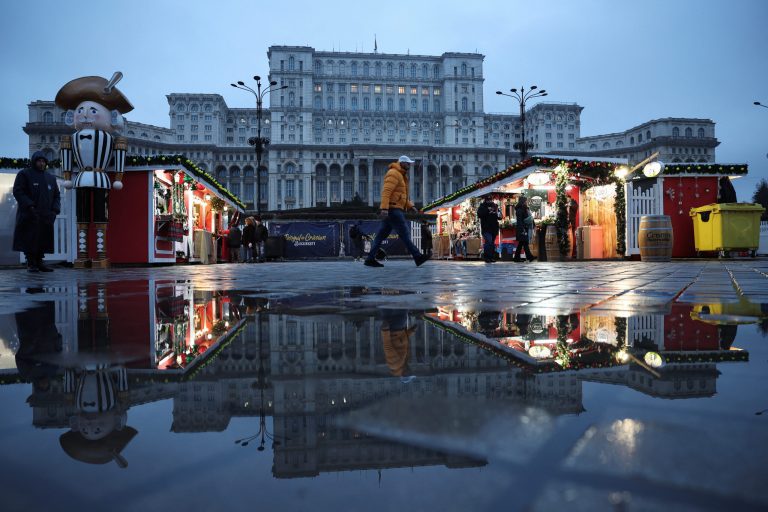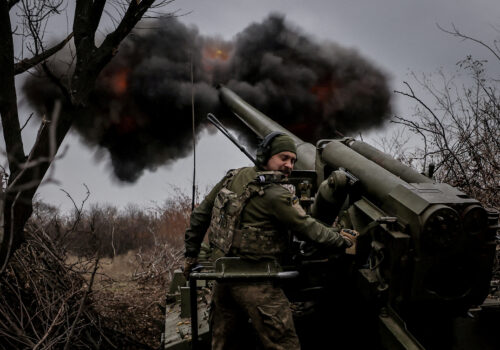December 16, 2024
Dispatch from Bucharest: Why did Romanian politics suddenly go off the rails?
BUCHAREST — It’s never a good thing when presidential elections are canceled. But that’s exactly what happened in Romania, a member of NATO and the European Union (EU), earlier this month.
In Bucharest, at the end of last week, I was able to see to what extent the Romanian political class was in shock at the sudden rise of Călin Georgescu. This is especially true among many pro-Western and liberal-minded Romanians. On November 24, Georgescu, a formally marginal mystical nationalist, won the largest number of votes in the first round of the presidential election. Then, just before the second round, the Romanian Constitutional Court announced that it was annulling the results of the first round. The court’s decision was based on declassified assessments by the Romanian government of foreign (Russian) interference in the elections, including the use of the social media platform. TikTok to promote Georgescu. U.S. intelligence officials privately confirmed to me that these allegations were credible. Yet evidence of Russian interference in European and American elections is abundant. No country before Romania has canceled a presidential election for this reason.
On the other hand, the Romanian legislative elections took place without incident on December 1. The parliamentary elections produced good results for the three ruling centrist parties – the center-right Liberals, the center-left Social Democrats and the Hungarian Minority Party – plus a fourth. liberal party. These four parties are currently negotiating to form a new coalition government. The political actors I met in Bucharest told me that the coalition would probably be announced before Christmas. The new government will then have to renew the canceled presidential election, probably early next year. Outgoing President Klaus Iohannis will likely remain in office until then.
In Romania, there is a widespread feeling, accurate or not, that the establishment has focused on itself.
The double shock – the rise of Georgescu and the cancellation of the presidential election – has shaken Romania’s hitherto complacent centrists. Although accusations of Russian interference (and attempted sabotage) are plausible, given that the Kremlin engages in such activities throughout the West, Georgescu’s popularity is not simply a foreign import. The fact that a man considered a marginal figure, even by his fellow nationalists, could go from near obscurity to a leading presidential candidate in a matter of weeks speaks to widespread social discontent with the Romanian centrist parties, which trade control of the government back and forth. for years.
My Romanian interlocutors expressed embarrassment, even shame, at the court’s annulment of the elections, and they recognized that it set a terrible precedent for the country and the region. They also recognized that the centrist parties had lost contact with Romanian society and its cultural and economic discontents which, when expressed, resembled those of disaffected right-wing voters in Germany (especially in the former East Germany ), in France and to a certain extent in the United States. In Romania, there is a widespread feeling, accurate or not, that the establishment has focused on itself, not on the problems faced by ordinary citizens, and that traditional national values, even national sovereignty , were disappearing.
More thoughtful liberals told me that Georgescu’s ascension was, in fact, a protest vote against centrist complacency, not a vote for the candidate’s strange brand of nationalism and Romanian fascist nostalgia. The answer, they said, was for the new coalition to feature new faces, not old ones who have lost credibility, in the positions of prime minister and president. But a wise leader of one of the nationalist parties was skeptical. There is no question, he told me, of the centrist parties abandoning their own leaders in favor of a new team. This is not their style of operation, he insisted, predicting that they would once again opt for the status quo of leadership.
Between their domestic politics, the Russian threat in neighboring Ukraine, and concerns about the direction of U.S. foreign policy under the new Trump administration, most Romanians I spoke with were nervous. Nonetheless, they focused on the path forward to limit the damage to Romanian democracy caused by the canceled presidential election. The solution is to restart the presidential election quickly and credibly and quickly respond to the political discontent that propelled Georgescu, they said. Some Romanian politicians I spoke with even seemed willing to consider recruiting new faces to lead the next government.
This may be easier said than done. It is unclear whether Georgescu will be allowed to compete given various irregularities in his campaign, including his alleged claim that he spent no money on his campaign. If he is not allowed to compete, the credibility of the new presidential election will be called into question inside and outside the country. If he is allowed to compete, he could win. In this case, a nationalist president and a centrist government could quickly find themselves at odds. The resulting political paralysis could hamper governance, further increasing social frustrations.
Political tensions in Romania come against the backdrop of a generation or more of generally successful transformation after decades of communist rule. Romanian communist dictator Nicolae Ceaușescu was repressive and economically incompetent, even by communist standards. When Romanians overthrew his power in a swift (and violent) revolt in December 1989, the country was one of the poorest in Soviet-dominated Europe. Not anymore. After a slow start, free market reforms in Romania have taken off. The country’s economy has quadrupled in size since 1989 and joined NATO and the EU. Even if the current political crisis takes hold, Romania won entry into the EU’s Schengen area, meaning freedom to travel within the bloc. It was a big deal for Romanians, and everyone I spoke with in Bucharest considered it a major national achievement.
But the success, seen from afar and in context, does not seem enough to appease Romanian voters. Political discontent spread throughout Europe and the United States hit Romania hard. The good news, as I reminded my interlocutors in Bucharest, is that Romania is part of the same political family as the rest of Europe and the United States. The bad news is that they share the same challenges and struggle to overcome them.
Many Romanian nationalists seem to believe that the new Trump administration will favor them. Some in President-elect Donald Trump’s broader world have sought out those they view as ideologically sympathetic. Indeed, the Romanian media were filled with speculation that Robert F. Kennedy Jr., whom Trump appointed to head the U.S. Department of Health and Human Services, had planned to visit Romania after the first round of the presidential election, primarily to promote Georgescu. (The trip did not take place and the story may have been generated It is questionable whether the Trump administration will find Georgescu’s self-proclaimed Romania-first views (pro-Russian, anti-Ukrainian, and anti-foreign investment) useful: ideological compatibility may not translate into political compatibility.
What happens next depends on the Romanians: will the next government have new faces? When and how will the new presidential election take place? And can Romania’s centrist parties learn lessons from a near political train wreck?
Daniel Fried is a distinguished member of the Weiser family at the Atlantic Council, former U.S. Ambassador to Poland, and former U.S. Assistant Secretary of State for Europe.
Further reading
Thu. December 12, 2024
Why Finland thinks Finnishization is a bad idea for Ukraine
Ukraine Alert
By
Some believe that definitizing Ukraine is the most realistic option for ending the Russian invasion, but any attempt to impose neutrality would leave Ukraine in a precarious position, writes Minna Ålander.
Image: A person walks near a Christmas market on Constitution Square, near the Palace of Parliament, after Romania’s highest court annulled the result of the first round of the presidential election, in Bucharest, Romania, December 6, 2024. REUTERS/Louisa Gouliamaki



